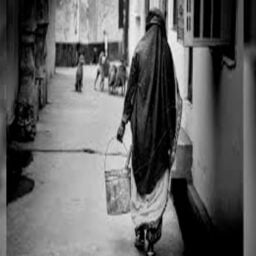INTRODUCTION
The age of adolescence is one of the most important phases of an individual’s life. It is marked by major behavioral changes and striving for greater autonomy in personal life. One is drawn towards the exploration of self-identity including sexual instincts with less tolerance of others in close relationships.[1] But in a country like India where societal and cultural influence takes prime importance in life decisions; parents and the overall family do play a decisive role in choices made by the growing up teenagers.
It is also not hidden that the control exerted by Indian parents is strongest in cases of consensual romantic relationships amongst teenagers of 16-18 years of age.[2] With parents and society having a say in almost every single thing of their teenage kid’s life, one may wonder how far should there be an intrusion in a thing as private as an individual’s sexual consent (which is again fixed by law). This article explores the ongoing debate around the age of consent in India, whether it should be restored to 16 years or the current 18 years is what must be preferred.
WHAT DOES OUR LAW SAY?
Any discussion on the topic of the age of consent is incomplete without a mention of the Protection of Children from Sexual Offences Act, 2012 (POCSO) and the subsequent Criminal Law Amendment Act, 2013 (CLA Act). POCSO is largely known as landmark legislation for dealing with child sexual abuse comprehensively in India. It penalizes all kinds of sexual abuse faced by the children (of all genders); defining ‘child’ as anyone below 18 years of age.
Soon after its implementation, the Delhi gang-rape case sent shockwaves across the world which led to the passing of the CLA Act in India. A major change under this Act was increasing the age of consent from 16 to 18 years.[3] Back in the 1860s, the age of consent in India was fixed only for females and that too at the age of 10 years.[4] After subsequent changes in the following years, it was increased to 12, 14, 16 at various points of time, and finally in 2013 not only was it pegged at 18 years, but also lawmakers kept this age of consent gender-neutral, making it applicable to boys too.[5] As a result of the conjoint application of both the above-mentioned Acts, any sort of sexual activity below 18 years of age is automatically a crime in India. Hence, sexual intercourse with a girl below 18 years of age is considered “statutory rape” even if the free consent of the girl was involved because below 18 individuals can’t give consent.
CONCERNS
It is a well-known fact that adolescents of the age group 16-18 years in India are sexually active.[6] Early puberty amongst teens is common nowadays and so is early sexual activity due to mutual relationship-forming tendencies and greater exposure to everything.[7] But overlooking such an important fact, according to the current laws every sort of sexual expression amongst people below 18 years in India is criminalized.
In a survey conducted in Delhi by “Centre for Child and the Law, NLSIU”, sexual assault cases complained under POCSO roughly between 2013 to 2015 were analyzed and it was found that around 28% of the cases dealt with minors between 16-18 years but in 90% of these cases, the accused was acquitted. Minor girls did not want their partner to be charged for rape because they were knowingly in a physically intimate relationship with their partners and sexual activity between them was with the consent of the girl.
The law is also often misused by parents of the minor girls to falsely frame the boy in rape charges if their teenage daughter elopes with him and if they are against the relationship of their daughter.[8] This is mostly done to put pressure on the girl so that she returns to the family and later on she can be married to a boy which her family likes, irrespective of the fact that the girl consented to the physical relationship and elopement.
On a different note, the concept of marital rape weaves a different picture altogether. Sexual intercourse with an individual’s spouse without the spouse’s free consent is termed marital rape and it is not a crime in India.[9] This presents a very disturbing situation in the case of females when compared to teen relationships because on one hand, being below 18 years of age completely nullifies a girl’s consent and labels private sexual activity as rape; and on the other hand, if the girl is above 18 years of age, then husband’s sexual intercourse with her is completely valid even if she does not consent to because there is an assumption of “marital consent”. Just because she is married, the question of consent is not given importance.
OPINION OF THE COURTS
Not only amongst minors but there are also real-life instances where the relationship is between a minor and a person bit older. A recent case of occasional consensual sex between a minor girl of 15 years of age and a 19-year-old boy came into the limelight when the boy was being charged for rape, whereas the girl had admitted in front of the magistrate that the act was with her consent. It was also highlighted that her school teacher insisted to file a complaint. Accepting that case of consensual sex between minors is a grey area in law, Bombay High Court had acquitted the boy of the charges.
Another case was decided by the Supreme Court where a boy (18 years) was accused of raping a girl (17 years). They both had a consensual relationship. The complaint was filed when the boy disagreed to marry the girl. Later on, the boy cleared that refusal was due to being minor and subsequently they both wanted to stay in a relationship together with each other. As a result of this, the court clarified that POCSO is not to punish individuals who want to be in live-in relationships with their own will.
While dealing with a case involving minors, even Madras HC remarked that POCSO should be amended to reduce the age of consent to 16 years. The court said that to punish sexual assault in the age group of 16-18 years, separate provisions can be there in the Act itself so that a clear difference can be maintained in the cases of physical consensual relationships between minors aged 16 and above, and other genuine cases of sexual assault.
These cases are just a few examples that highlight how unfair can the law be for such young couples who should have a complete right to be with someone of their choice without unnecessary invasion. Such judgments clear the stance of the courts which are ready to admit that criminalizing teenage relationships is not the desired intent of the law. The current provisions related to child sex abuse are stringent and if applied in cases like the ones discussed above, the purpose of the law is defeated.
CONCLUDING REMARKS
The current age of consent is fixed based on what was deemed fit according to social and cultural factors. However, law and society are inseparable and ever-evolving; so, with change in times, a fresh perspective should be taken in the case of fixing the age of consent in India. Factors like teenage sexuality and psychological adulthood should be acknowledged. While one can’t neglect that fixing the age of consent extremely low would lead to the exploitation of minors, there can be a consideration for reducing it to 16 years.
A thought can also be given to the possibility of “close in age exemptions”. These are exceptions that allow a person below the prescribed age of consent to have consensual sex with an elder partner, provided the age gap is some specific number of years or less, say a maximum of three years. Such measures would lead to effective implementation of related laws and adolescents of 16-18 years would be able to lead a private dignified life. Treating rape and consensual sex amongst minors differently will help to avoid the miscarriage of justice.
Author(s) Name: Lovepreet Kaur (National Law University, Delhi)
References:
[1] Swagata Yadavar, ‘Why India is unprepared for its gathering teen sexual revolution’ Business Standard (New Delhi, 12 January 2018)
[2] Amita Pitre, Lakshmi Lingam, ‘Age of consent: challenges and contradictions of sexual violence laws in India’ (2021) 2(29) T&F Online <https://www.tandfonline.com/doi/full/10.1080/26410397.2021.1878656> accessed 13 August 2021
[3] Indian Penal Code 1860, s 375 (sixthly)
[4] Express News Service, ‘Did you know that the legal age of consent in 1860 was 10 years’ The New Indian Express (New Delhi, 11 October 2017)
[5] Supra note 2
[6] Ibid.
[7] Vageshwari Deswal, ‘Need to revisit the concept of ‘age of consent’’ The Times of India (New Delhi, 25 November 2019)
[8] Flavia Agnes, ‘Controversy over age of consent’ (2013) 48(29) EPW https://www.jstor.org/stable/23528498 accessed 9 August 2021
[9] Supra note 7
















